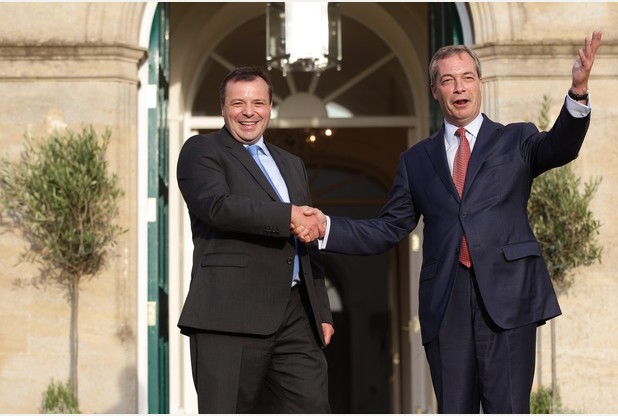For a party that got so badly mugged at the weekend, the Tories looked surprisingly chipper this week.
Partly this was due to Ed Miliband’s stumbles last week leaving space for David Cameron to make a strong speech yesterday that opened the campaign for the general election. Partly it was due to a decision to not let the party appear too rattled by UKIP.
The somewhat paradoxical result of the recent defections to UKIP has been to strengthen the resolve of the Tories, and reduce what sympathy there was for them. The seeming transformation of UKIP from a loony fringe to a serious contender has made it less of a vent for Tories feeling constrained on the EU or immigration, and more like a threat to the broader family of values that the Tories espouse. That UKIP has also been talking up its attraction to Labour voters of late has also helped in this shift, making the jump seem all the more consequential.
At the same time, the Tories have taken on board some of the challenge.
Philip Hammond gave a not-much-reported speech yesterday, in which he set out a robustly sceptical position on the EU, which recycled many of the tropes of red tape, ‘we thought it was a common market, not a political union’ and a ‘European superstate’. The tone was much less cautious than that of his predecessor at the Foreign Office, William Hague, even though the latter was no great friend of the European Union. Coupling Hammond’s words with Cameron’s stated desire to renegotiate free movement, if there is a Conservative government next May, then we can expect they would be locked into securing significant concessions in their renegotiations.
As I’ve argued before, that looks unreasonable and unlikely, so it will come down to how any changes can be dressed up, something that the Tory backbenches are unlikely to pass without careful inspection. Here again, if UKIP does secure seats in May, that might further complicate matters.
On the policy front, Cameron’s push on taxation was largely informed by wanting to out-manoeuver Labour on a key issue for many voters. The pushing up of tax bands and personal allowance fitted well with the Tories’ story about economic recovery and, seemingly, it wasn’t about natural UKIP territory: a key part of the strategy is to close down ‘UKIP’ issues with tougher talk, and then demonstrate wider relevance to people’s lives.
However, UKIP immediately jumped on the announcement as a rip-off of their own economic plans from last week (the LibDems did the same, pointing out they’ve been campaigning for this for longest of all).
At one level, the announcement is only coincidentally about UKIP, for the reasons outlined above: certainly, Cameron didn’t name-check them (working on the basis that it’s more effective to ignore opposition, rather than engage with it). But it raises a potential dilemma.
If the Tories take on harder positions on immigration and the EU, and if UKIP can spin the line that the Tories are just the same as them on other issues, then it create the situation where voters see policies that are largely interchangeable betweeen parties, meaning that it comes down more to questions of personal competence and likability. This is a general trend in Western polities, the rise of personality politics as the ideological battles have fought themselves out.
Such a situation can only further strengthen UKIP’s position, building on the personality of Farage in the run-up to the elections. This is not without dangers (for all involved: witness the messing about of the media yesterday), but it is one that might have some major consequences.

